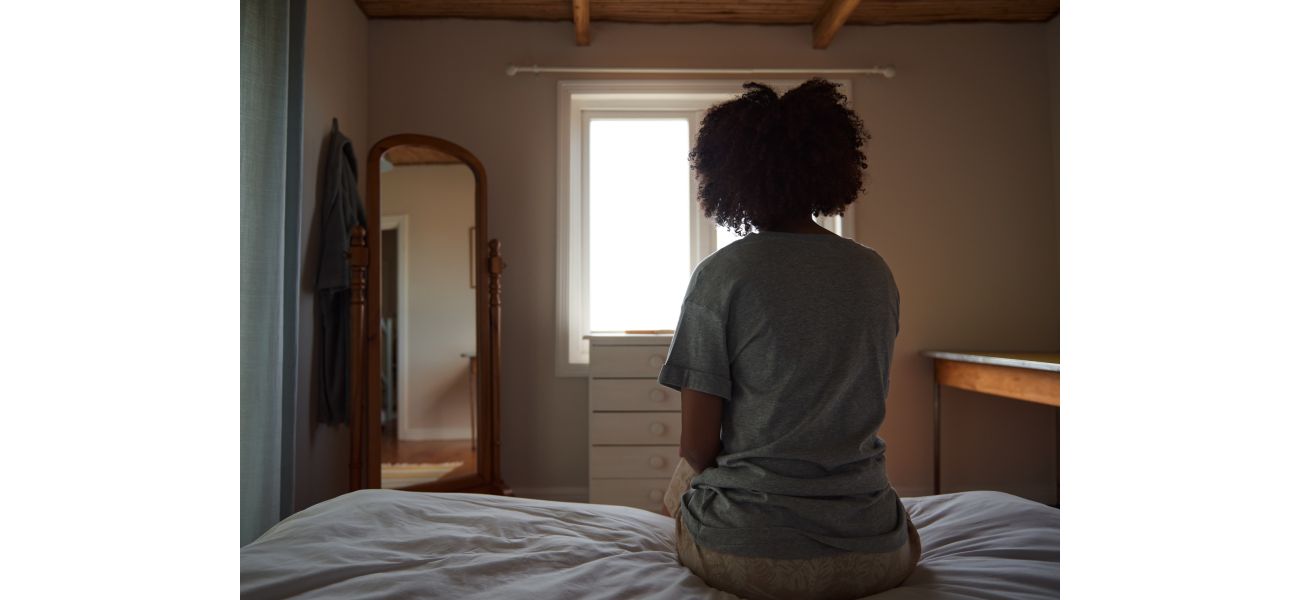If you are a victim of domestic abuse, there are steps you can take to seek help and protect yourself.
You are not alone if you're a victim of domestic abuse.
November 27th 2024.

If you are experiencing domestic abuse, know that you are not alone. As you read this, approximately four women will become victims of domestic abuse. That's one every 30 seconds. Shocking, right? And that's only the reported cases. In fact, less than 20% of women who have experienced partner abuse in the last year actually report it to the police. This means that the actual numbers are much higher. And to make matters even more unsettling, at least one woman will be killed by her current or former partner this week. The scale of domestic abuse and the danger it poses is very real and immediate.
But you are not alone. Whether you are currently dealing with domestic abuse or have made the decision to leave, know that you have options. But first, let's understand what domestic abuse actually is. It's not just physical violence. It can also be controlling, coercive, threatening, degrading, and even sexual and financial. And it's not just limited to a partner or ex-partner. It can also involve other family members, carers, and even non-blood relatives. This includes acts like forced marriage, female genital mutilation, stalking, and trafficking.
Domestic abuse can happen anywhere - at home, outside, and even online. And while it's more commonly perpetrated by men against women, it can also happen in same-sex relationships or even by women against men. This is a widespread issue that affects one in four women in their lifetime. In fact, over 800,000 domestic abuse crimes were recorded by police in just one year. And unfortunately, the reality is even more grim - one woman is killed by a current or former intimate partner every three days.
Leaving a domestic abuse situation is not easy. It can be dangerous and complex, especially if the abuser feels like they are losing control. But if you are ready to take that step, know that there is support available. You can start by reaching out to a domestic abuse charity helpline, where trained staff will listen without judgement and provide guidance without telling you what to do. There are also resources like Women's Aid's Survivor's Handbook, which offers advice for every stage of your journey.
Women's Aid is a national charity that works tirelessly to end domestic abuse against women and children. They provide local services and support survivors, while also campaigning for change and holding the government accountable for addressing the causes and consequences of domestic abuse. If you want to learn more about Women's Aid, visit their website and consider supporting their work.
It's time to say enough is enough. Metro has launched a year-long campaign called This Is Not Right to address the epidemic of violence against women. Through our partnership with Women's Aid, we aim to educate, engage, and empower our readers on this important issue. We will be sharing stories that highlight the scale of this problem and calling on everyone - including men - to help end violence against women. Remember, you are not alone and there is hope. If you or someone you know is a victim of domestic abuse, know that there are people who care and resources available to support you.
If you are experiencing domestic abuse, you are not alone. It may seem like a daunting statistic, but in the time it takes you to read this article, approximately four women will have become victims of domestic abuse. This means that every 30 seconds, a domestic abuse-related call is reported to the police. However, despite these alarming numbers, it is estimated that only around 20% of women who experience partner abuse actually report it to the police. This is a staggering reality that highlights the widespread issue of domestic abuse and the very real danger it poses to individuals.
Domestic abuse, also known as domestic violence and intimate partner violence, can take many forms ranging from physical to psychological, emotional, sexual, and financial. It can involve controlling, coercive, threatening, degrading, and violent behavior, including sexual violence. According to domestic abuse charity SafeLives, if you feel unsafe with someone who claims to care about you, you may be experiencing domestic abuse. It can occur in any type of relationship and can happen both in and out of the home, as well as digitally through online means. This term also encompasses other forms of abuse such as 'honour'-based abuse, forced marriage, female genital mutilation, stalking, and even trafficking.
On November 25, 2024, Metro launched a year-long campaign called 'This Is Not Right' to address the relentless epidemic of violence against women. Throughout the year, we will be sharing stories that shed light on the sheer scale of this issue. In partnership with Women's Aid, 'This Is Not Right' aims to educate, engage, and empower our readers on the issue of violence against women. We encourage you to read our recent articles on the project and if you have a story to share, please email us at email.
Despite the commonly associated 'domestic' connotation, domestic abuse can happen anywhere and to anyone. In most cases, it is perpetrated by men against women, primarily by a partner or ex-partner. However, it is important to note that female against male domestic abuse also occurs and can be just as serious and damaging. Domestic abuse can also be committed by wider family members or carers, such as step-parents, siblings, cousins, and non-blood relatives who are connected by marriage.
Statistics show that one in four women will experience some form of domestic abuse in their lifetime. In the year ending June 2024, over 800,000 domestic abuse crimes were recorded by police in England and Wales. Furthermore, research has revealed that one woman is killed by a current or former intimate partner on average once every three days. These numbers are alarming and highlight the urgent need to address this epidemic.
Leaving a domestically abusive situation is not always easy. Victims are often at greater risk during a separation if the abuser feels like they are losing control. Safety concerns, as well as financial, family, and emotional ties, can make the decision to leave even more complex. Women's Aid has a Survivor's Handbook with advice for every stage of the journey, whether you are unsure if your relationship is abusive or have already left and need support. They also have a helpline with trained staff who will listen without judgment and offer support without telling you what to do.
We have partnered with Women's Aid for our 'This Is Not Right' campaign. As a national charity, they are continuously working to end domestic abuse against women and children. With over 180 organizations and almost 300 local services, Women's Aid supports survivors and campaigns for change to address the causes and consequences of domestic abuse. To learn more about their work and how you can get involved, please visit their website. If you are in need of immediate support, please call their helpline. For some, seeking legal help may be the best option. A lawyer can assist in obtaining orders to exclude the abuser from the family home and protect the victim from harm or harassment. In urgent cases, these orders can be obtained within days or even hours.
If you are experiencing domestic abuse, know that you are not alone and that there are options available to you. Whether you are currently coping with the abuse or have made the decision to leave, please know that help is out there and you deserve to live a life free from violence and fear.
But you are not alone. Whether you are currently dealing with domestic abuse or have made the decision to leave, know that you have options. But first, let's understand what domestic abuse actually is. It's not just physical violence. It can also be controlling, coercive, threatening, degrading, and even sexual and financial. And it's not just limited to a partner or ex-partner. It can also involve other family members, carers, and even non-blood relatives. This includes acts like forced marriage, female genital mutilation, stalking, and trafficking.
Domestic abuse can happen anywhere - at home, outside, and even online. And while it's more commonly perpetrated by men against women, it can also happen in same-sex relationships or even by women against men. This is a widespread issue that affects one in four women in their lifetime. In fact, over 800,000 domestic abuse crimes were recorded by police in just one year. And unfortunately, the reality is even more grim - one woman is killed by a current or former intimate partner every three days.
Leaving a domestic abuse situation is not easy. It can be dangerous and complex, especially if the abuser feels like they are losing control. But if you are ready to take that step, know that there is support available. You can start by reaching out to a domestic abuse charity helpline, where trained staff will listen without judgement and provide guidance without telling you what to do. There are also resources like Women's Aid's Survivor's Handbook, which offers advice for every stage of your journey.
Women's Aid is a national charity that works tirelessly to end domestic abuse against women and children. They provide local services and support survivors, while also campaigning for change and holding the government accountable for addressing the causes and consequences of domestic abuse. If you want to learn more about Women's Aid, visit their website and consider supporting their work.
It's time to say enough is enough. Metro has launched a year-long campaign called This Is Not Right to address the epidemic of violence against women. Through our partnership with Women's Aid, we aim to educate, engage, and empower our readers on this important issue. We will be sharing stories that highlight the scale of this problem and calling on everyone - including men - to help end violence against women. Remember, you are not alone and there is hope. If you or someone you know is a victim of domestic abuse, know that there are people who care and resources available to support you.
If you are experiencing domestic abuse, you are not alone. It may seem like a daunting statistic, but in the time it takes you to read this article, approximately four women will have become victims of domestic abuse. This means that every 30 seconds, a domestic abuse-related call is reported to the police. However, despite these alarming numbers, it is estimated that only around 20% of women who experience partner abuse actually report it to the police. This is a staggering reality that highlights the widespread issue of domestic abuse and the very real danger it poses to individuals.
Domestic abuse, also known as domestic violence and intimate partner violence, can take many forms ranging from physical to psychological, emotional, sexual, and financial. It can involve controlling, coercive, threatening, degrading, and violent behavior, including sexual violence. According to domestic abuse charity SafeLives, if you feel unsafe with someone who claims to care about you, you may be experiencing domestic abuse. It can occur in any type of relationship and can happen both in and out of the home, as well as digitally through online means. This term also encompasses other forms of abuse such as 'honour'-based abuse, forced marriage, female genital mutilation, stalking, and even trafficking.
On November 25, 2024, Metro launched a year-long campaign called 'This Is Not Right' to address the relentless epidemic of violence against women. Throughout the year, we will be sharing stories that shed light on the sheer scale of this issue. In partnership with Women's Aid, 'This Is Not Right' aims to educate, engage, and empower our readers on the issue of violence against women. We encourage you to read our recent articles on the project and if you have a story to share, please email us at email.
Despite the commonly associated 'domestic' connotation, domestic abuse can happen anywhere and to anyone. In most cases, it is perpetrated by men against women, primarily by a partner or ex-partner. However, it is important to note that female against male domestic abuse also occurs and can be just as serious and damaging. Domestic abuse can also be committed by wider family members or carers, such as step-parents, siblings, cousins, and non-blood relatives who are connected by marriage.
Statistics show that one in four women will experience some form of domestic abuse in their lifetime. In the year ending June 2024, over 800,000 domestic abuse crimes were recorded by police in England and Wales. Furthermore, research has revealed that one woman is killed by a current or former intimate partner on average once every three days. These numbers are alarming and highlight the urgent need to address this epidemic.
Leaving a domestically abusive situation is not always easy. Victims are often at greater risk during a separation if the abuser feels like they are losing control. Safety concerns, as well as financial, family, and emotional ties, can make the decision to leave even more complex. Women's Aid has a Survivor's Handbook with advice for every stage of the journey, whether you are unsure if your relationship is abusive or have already left and need support. They also have a helpline with trained staff who will listen without judgment and offer support without telling you what to do.
We have partnered with Women's Aid for our 'This Is Not Right' campaign. As a national charity, they are continuously working to end domestic abuse against women and children. With over 180 organizations and almost 300 local services, Women's Aid supports survivors and campaigns for change to address the causes and consequences of domestic abuse. To learn more about their work and how you can get involved, please visit their website. If you are in need of immediate support, please call their helpline. For some, seeking legal help may be the best option. A lawyer can assist in obtaining orders to exclude the abuser from the family home and protect the victim from harm or harassment. In urgent cases, these orders can be obtained within days or even hours.
If you are experiencing domestic abuse, know that you are not alone and that there are options available to you. Whether you are currently coping with the abuse or have made the decision to leave, please know that help is out there and you deserve to live a life free from violence and fear.
[This article has been trending online recently and has been generated with AI. Your feed is customized.]
[Generative AI is experimental.]
0
0
Submit Comment





